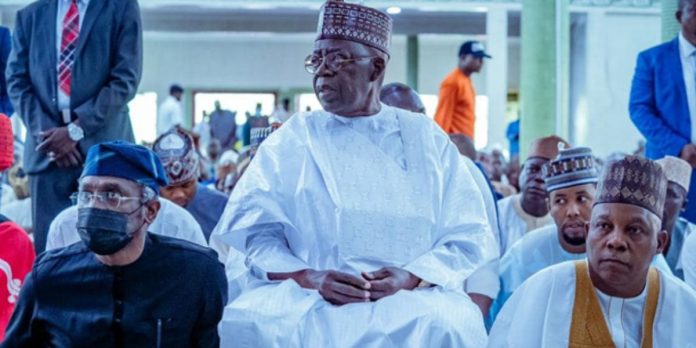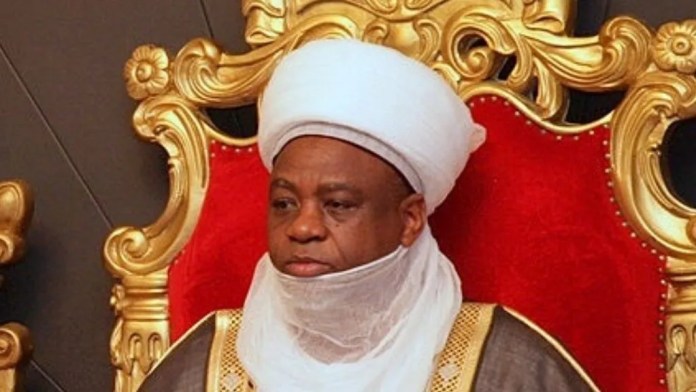In the name of Allah, the Most Merciful, the Grantor of Mercy
ِAll praises are due to Allah and peace and blessings be upon the Messenger of Allah, his family, companions and those who follow him well until Judgement Day.
Dear brothers and sisters, know that, Islam cared about spreading peace and safety in the whole human society at large. Islam also cared to combat all forms of violence and terrorism which are against the higher values and refined ethics that are propagated by Islam. Allah Almighty says:
“Good and evil deeds are not equal. Repel evil with what is better; then you will see that one who was once your enemy has become your dearest friend.” [Qur’an, 41:34]
The Prophet’s tradition came as a practical application of this rule.
The society in which the Prophet Muhammad (Peace be upon him) lived was by no means better than the societies of our days. The problems of violence and terrorism were deeply rooted even then. They were practiced as if they were prime rights and this can be seen in the words of Ja’afar Ibn Abu Talib who said to the Najjashi (Negus) of Ethiopia:
“O King, we were a people in a state of ignorance (Jahiliyyah) and immorality, worshipping idols and eating the flesh of dead animals, committing all sorts of abomination and shameful deeds, breaking the ties of kinship, treating guests badly and the strong among us exploited the weak.” [Sirah of Ibn Hisham]
If we took the issue of killing newly born girls for instance we will see how deeply it reflects the problem of violence, cruelty and terrorism, that’s why the Prophet Muhammad (Peace be upon him) said about it:
“Allah forbids three and prohibits three; being undutiful to parents, killing newly born girls…” [Bukhari]
Amidst all this the Prophet Muhammad (Peace be upon him) came to find for the society a way out of all this terrorism and violence. The Islamic solution is characterised with wisdom, decisiveness and mercy. The solution started by instilling the concept of self-watchfulness in the souls of the companions (each one must watch himself/herself because Allah is watching us all and He knows what we harbour). The Islamic concept says:
“Worship Allah as if you see him…” [Ahmad]
The Prophetic solution then takes another step forward by visualising the society in which any human being deserves to live in. There are a group of values that any society must abide by, first of which is; spreading the spirit of kindness and justice without any discrimination due to faith, race, region or tribe. The Prophet Muhammad (Peace be upon him) said:
“Allah is kind and He loves kindness. He gives to kindness that which He does not give to violence or any other thing.” [Muslim]
His tradition and lifestyle came as a direct application of this value even in matters that concerned him personally. Aisha (RA) narrated that:
“Some Jews came to Allah’s Messenger (Peace be upon him) and they said: “Abul-Qasim, as-Samu-Alaikum”, whereupon he said: “Wa Alaikum (same upon you).” Aisha reported, In response to these words of theirs, I said, “But let there be death upon you and disgrace also, whereupon Allah’s Messenger (Peace be upon him) said, “Aisha, do not use harsh words.” She said, “Did you hear what they said?” Thereupon he said, “Did I not respond to them, “Same upon you?” [Bukhari]
The next value is ‘mercy’ and it is one of the basic pillars of any Muslim society; it is the building-blocks of any human being who acts in mercy and compassion away from any violence of terrorism. Let us look at the Prophet’s biography to realise the value of this great concept in his life. Anas narrated that:
“A Bedouin (a villager) stood up and started urinating in the Mosque. The people caught him but the Prophet (Peace be upon him) ordered them to leave him and to pour a bucket or a tumbler of water over the place where he had passed the urine. The Prophet then said, “You have been sent to make things easy and not to make them difficult.” [Bukhari]
In this incident we see how, with great leniency, the Prophet Muhammad (Peace be upon him) prevented his companions from any violence and at the same time he gently taught the Bedouin (villager) a lesson he will never forget in history.
The other value is moderation (as contrary to extremism, extravagance and fanaticism). He (Peace be upon him) said:
“This religion is very easy and whoever overburdens himself in his religion will not be able to continue in that way. So you should not be extremists, but try to be near to perfection and receive the good tidings that you will be rewarded; and gain strength by worshipping in the mornings and in the nights.” [Bukhari]
Then comes the value of ‘making peace’ between the citizens of the single society or country. Jabir narrated that:
“Verily a person asked the Messenger of Allah (Peace be upon him), Who amongst the Muslims is more excellent?” Upon this the Prophet (Peace be upon him) said, “From whose hand and tongue the Muslims are safe.” [Muslim]
He did not suffice with just these refined values to solve the problem of violence and terrorism; he also stressed a set of ethics (dos and don‘ts) to block the channels that could lead to any violence by spreading the spirit of love, cordiality and mercy. He (Peace be upon him) prohibited his followers from any violence against women as in the narration of Iyas Ibn Abdullah, who said that he heard the Prophet (Peace be upon him) saying:
“Do not beat Allah’s handmaidens (meaning women), but when Umar came to the Prophet (Peace be upon him) and said, “Women have become emboldened towards their husbands, the Prophet gave permission to beat them. Then many women came round the family of the Prophet complaining against their husbands. So the Prophet said, “Many women have gone round Muhammad’s family complaining against their husbands. Those men are not the best among you.” [Abu Dawud]
He also prohibited any acts of violence against servants when he said to Abu Mas’ud after he saw him beating his servant:
“Abu Mas’ud, bear in mind Allah has more dominance over you than you have upon him.” Abu Mas’ud turned and found him to be the Prophet Muhammad (Peace be upon him) so he said, “Allah‘s Messenger, I set him free for the sake of Allah.” Thereupon he said: Had you not done that, (the gates of) Hellfire would have opened for you, or the fire would have burnt you.” [Muslim]
He also warned greatly against killing and bloodshed in response to Allah’s order:
“And do not kill the soul which Allah has forbidden, except by right…” [Qur’an, 17:33]
The Prophet Muhammad (Peace be upon him) confirmed the gravity of this crime in saying:
“If all the inhabitants of the earth and heaven conspired over the blood of a believer, Allah will throw them all in Hellfire.” [Al-Tirmidhi]
He (Peace be upon him) warned against frightening peaceful citizens in any way and said:
“He who points a weapon towards his brother, the angels invoke curse upon him even if he was his real brother…” [Muslim]
This shows us how grave the crime of terrorising people is and this includes both Muslims and non-Muslims. Zaid Ibn Su‘unah came to the Prophet Muhammad (Peace be upon him) one day to request payment of a debt; he grabbed hold of the Prophet’s collar staring angrily into his face, he said:
“O Muhammad! When are you going to pay my dues? By Allah all that the children of Abdul Muttalib have learnt is how to procrastinate by mixing with you people, now I have first-hand knowledge of this!” Zaid Ibn Su‘unah says that as he was doing this, his gaze fell on Umar. He noticed that Umar’s eyes were starting to roll with anger and he stared with fury. He said, “O enemy of Allah, do you speak to the Prophet like that and treat him in this manner? Had it not been for respect of being in the company of the Prophet, I would have cut off your neck.” Zaid Ibn Su‘unah says that all the while, the Prophet (Peace be upon him) looked at him in a most calm and unruffled manner, and then he said to Umar, “O Umar! All that the two of us need is for you to tell me to pay him quickly and to tell him to place his demands in a better manner. O Umar go with him and give him his dues. Also give him twenty Sa’i (weights scale – a standard measure that equals 3kg) of dates extra in lieu of the threat you gave him.” [Ibn Hibban]
He also forbade frightening people even if it is only for fun. The Companions of the Prophet (Peace be upon him) said that they were travelling with the Prophet (Peace be upon him) when one of them fell asleep. Another one of them went to the rope which he had with him and he took it, this startled the sleeping person out of his sleep. So the Prophet said:
“It is not lawful for a Muslim that he frightens a Muslim.” [Abu Dawud]
Allah Almighty brought down a clear ruling against thugs, rebels, bandits and terrorists in the Qur’an. He Almighty says:
“Those that make war against Allah and His Messenger and spread disorder in the land shall be put to death or crucified or have their hands and feet cut off on alternate sides, or be banished from the country. They shall be disgraced in this world, and then severely punished in the Hereafter.” [Qur’an, 5:33]
The Prophet Muhammad (Peace be upon him) put this strictly into practice in order to achieve the highest level of peace and security in the society. The Prophetic method was not just hinged on the inner reformation of Muslims but it also went beyond that in tackling the relation between the Muslims and non-Muslims. The Prophet Muhammad (Peace be upon him) always tended towards peaceful solutions with those who differed with him even at the times of war. He always beseeched leaders in the battlefield not to kill an old person, a child, a youth or a woman. He said to Ali (RA) before taking off to the battle of Khaibar:
“Advance cautiously until you reach their open places, thereafter invite them to Islam and inform them what is obligatory for them from the rights of Allah, for, by Allah, if Allah guides aright even one person through you that is better for you than to possess the most valuable of the camels.” [Bukhari]
This was how he fought every form of chaos in the society that could threaten the peace and safety of the citizens, be it terrorism, banditry, thuggery, armed robbery, kidnapping, theft, civil disorder or whatever other behaviour that can spread fright and fear among the citizens.
All praise and thanks are due to Allah alone, Lord of the worlds. May the peace, blessings and salutations of Allah be upon our noble Messenger, Muhammad, and upon his family, his Companions and his true and sincere followers.
Murtadha Muhammad Gusau is the Chief Imam of Nagazi-Uvete Jumu’ah and the late Alhaji Abdur-Rahman Okene’s Mosques, Okene, Kogi State, Nigeria. He can be reached via: gusauimam@gmail.com or +2348038289761.
This Jumu’ah Khutbah (Friday sermon) was prepared for delivery today, Friday, Rabi’ul Thani 11, 1442 AH (November 27, 2020).





